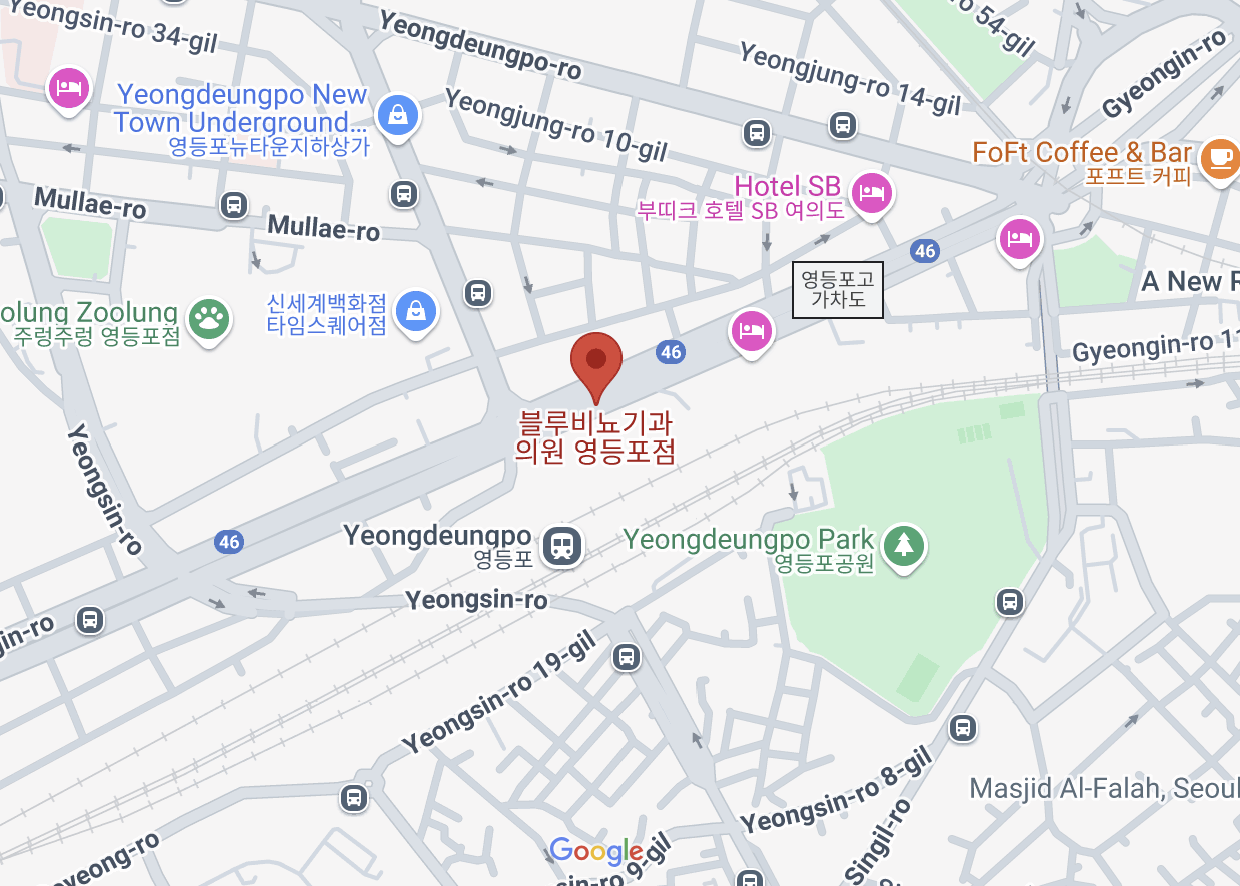Full Panel STD Testing
Seoul Korea
Gangnam, Yeongdeungpo, Yeouido, Jamsil
Getting a full STD panel is a responsible and proactive step for anyone concerned about their sexual health, especially for foreigners living in South Korea. Many STDs are asymptomatic, meaning you can have them without knowing, and a comprehensive panel ensures you're screened for the most common and impactful infections.
What is Typically Included in a "Full STD Panel" in Korea?
While the exact components can vary slightly between clinics, a comprehensive STD panel in Korea generally includes tests for:
- Bacterial STIs (Curable):
- Chlamydia: Very common, often asymptomatic, tested via urine sample or swab.
- Gonorrhea: Also common, can be asymptomatic, tested via urine sample or swab.
- Syphilis: Can have serious long-term effects if untreated, tested via blood sample.
- Ureaplasma & Mycoplasma Genitalium: These are often included in comprehensive panels, especially if there are symptoms of urethritis or cervicitis, or for fertility concerns. They are detected via PCR from urine or swabs.
- Trichomoniasis: A parasitic infection, often included, tested via urine or swab.
- Viral STIs (Manageable, but not curable):
- HIV (Human Immunodeficiency Virus): Tested via blood sample (often with a rapid test for initial screening).
- Hepatitis B & C: Viral infections affecting the liver, tested via blood sample.
- Herpes Simplex Virus (HSV-1 and HSV-2): Causes oral and/or genital herpes, tested via blood sample (for antibodies) or swab of active sores.
- Human Papillomavirus (HPV):
- For women: Often involves a Pap smear to screen for cervical cell changes caused by high-risk HPV. HPV DNA testing may also be offered.
- For men: May involve specific HPV PCR testing for high-risk types, especially if genital warts are present or for screening purposes.
Less Common/Optional Additions: Some clinics might also offer tests for less common STIs or specific conditions like Chancroid, Pubic Lice (Crabs), or Mange (Scabies), though these are usually diagnosed based on visible symptoms.
Where Can Foreigners Get a Full STD Panel in Korea?
For foreigners, private clinics are generally the most convenient and recommended option for comprehensive STD panels due to their English-speaking services, discretion, and advanced testing capabilities.
- Private Urology Clinics (for men) & OB/GYN Clinics (for women):
- Most Comprehensive: These clinics are specifically set up to offer full STD panels using advanced PCR (Genetic) tests and blood tests. They often have dedicated "STD/STI Test" packages.
- English-Speaking & Confidential: Many clinics in major expat areas (e.g., Gangnam, Itaewon in Seoul) provide services in English and prioritize patient privacy.
- Fast Results & Treatment: They aim for quick turnaround times on results (often 1-3 business days, some even 24 hours for certain tests) and can immediately provide treatment for positive results.
- Korea Federation for HIV/AIDS Prevention (KHAP):
- Free & Anonymous for Core Tests: While primarily focused on HIV, KHAP also offers free and anonymous testing for other key STIs like syphilis, gonorrhea, and chlamydia for foreigners. They may not offer a full "panel" in the same comprehensive way as private clinics (e.g., Ureaplasma/Mycoplasma, HPV, Herpes might be extra or not available), but they are an excellent resource for core testing.
- Multilingual Support: They are very foreigner-friendly.
- Check Schedule: Their testing schedule and locations (e.g., Itaewon, Gireum, Ansan, Busan) rotate, so always check their website (khap.org) or contact them first.
Cost of a Full STD Panel in Korea for Foreigners:
The cost can vary significantly based on the number of tests included in the panel and the clinic's pricing structure.
- Basic to Mid-Range Panels (e.g., HIV, Syphilis, Gonorrhea, Chlamydia, Hepatitis B/C):
- Expect to pay approximately ₩100,000 to ₩250,000 KRW (around $75 to $185 USD).
- Comprehensive Panels (including Ureaplasma, Mycoplasma, HPV, Herpes, Trichomoniasis):
- These more extensive panels can range from ₩250,000 to ₩400,000 KRW (around $185 to $300 USD).
- Some very extensive panels, especially if including HPV genotyping for many types, might be on the higher end or even exceed this range.
Important Note on Insurance: If you have Korean National Health Insurance (NHIS) and your Alien Registration Card (ARC), bring it to the clinic. NHIS can significantly reduce your out-of-pocket costs for medically necessary tests. However, even without NHIS, many private clinics offer competitive and reasonable prices.
What to Expect During Your Full STD Panel Visit:
- Consultation: You'll have a confidential discussion with a doctor about your sexual history, any symptoms you might be experiencing, and your reasons for seeking a full panel. Being honest and open will help the doctor recommend the most appropriate tests.
- Sample Collection:
- Blood Sample: For HIV, Syphilis, Hepatitis B/C, and Herpes (HSV-1/2) antibodies.
- Urine Sample: Commonly used for Chlamydia, Gonorrhea, Ureaplasma, Mycoplasma, and Trichomoniasis (often using highly sensitive PCR/NAAT tests). You'll typically provide a first-catch urine sample.
- Swabs: Depending on your sexual history or symptoms, swabs might be taken from the urethra, cervix, vagina, throat, or rectum.
- Pap Smear (for women): If HPV screening is included, a Pap smear (cervical swab) will be performed.
- Results: Rapid HIV tests give immediate results. For other tests in a full panel, results are usually available within 1-3 business days. Many clinics can send results discreetly via email or phone.
- Counseling & Treatment: If any test is positive, the doctor will provide comprehensive counseling, explain the diagnosis, discuss treatment options (antibiotics for bacterial STIs, antivirals for viral symptom management), and advise on partner notification and follow-up tests.
Getting a full STD panel in South Korea is an accessible and vital step for your sexual health. With modern clinics, advanced testing, and often English-speaking staff, you can ensure your peace of mind and well-being.

